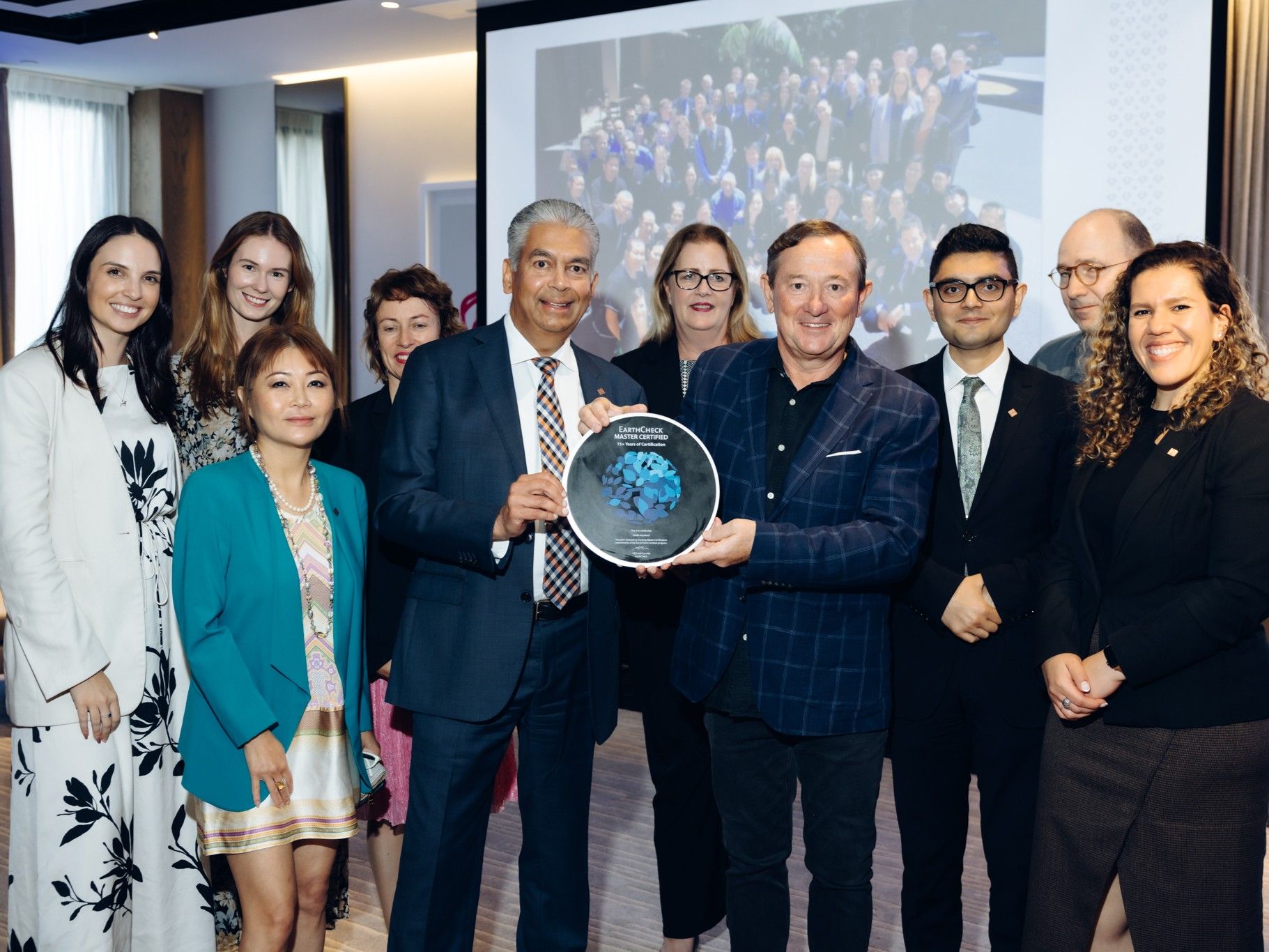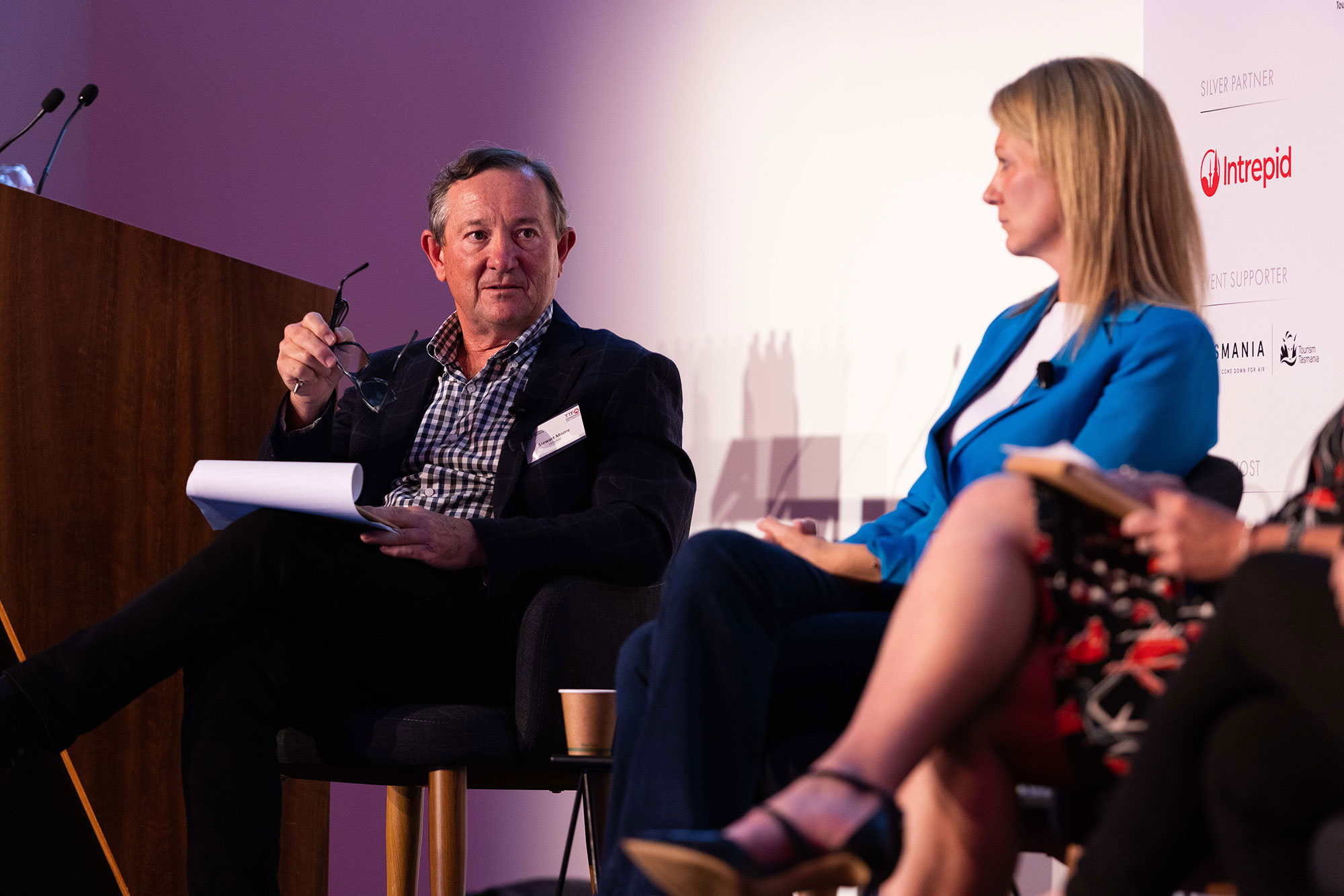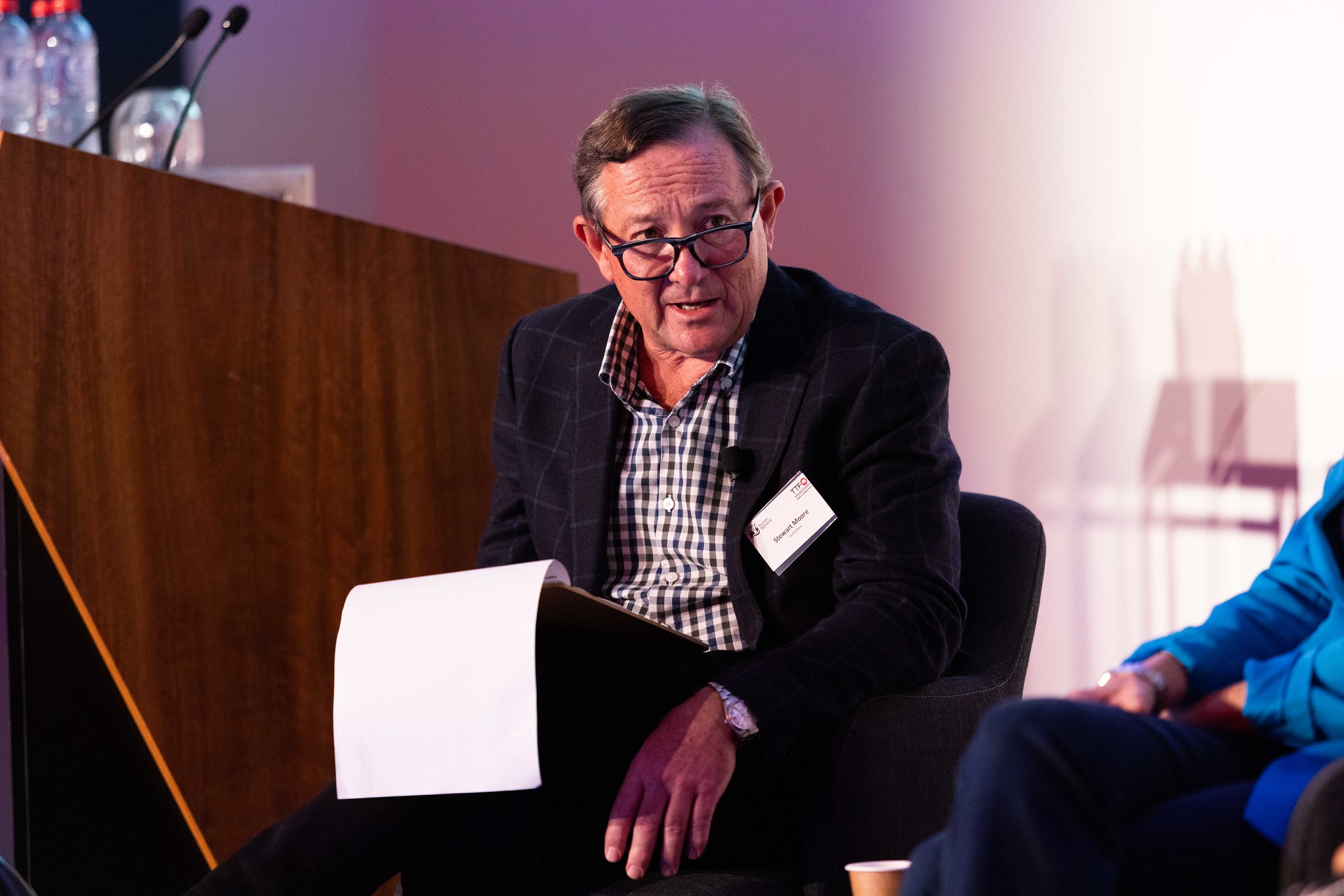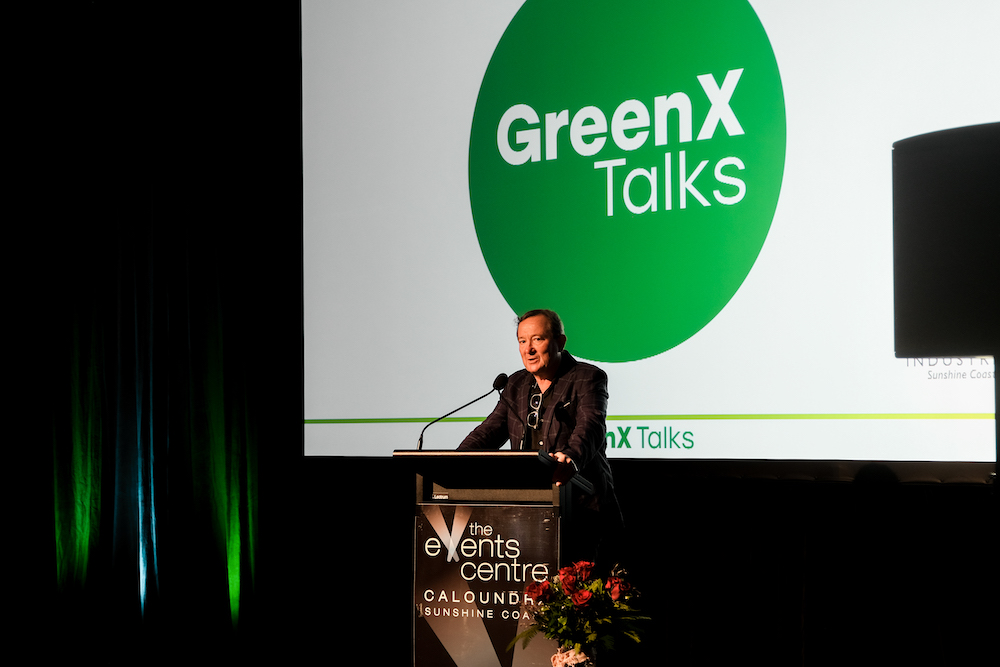05 Oct 2023
Words
John Miller Informer 108
The Jolly Green Giant
Australian company EarthCheck took its certification to the world and is now a globally recognised brand for sustainable travel and tourism.
As far as eco-warriors go, Stewart Moore is a cheerful one. The CEO and founder of Brisbane-based EarthCheck prefers to agreeably encourage others to join him on the sustainability journey rather than alienate them by moralising on high.
“I sometimes don’t even lead with the word ‘sustainability’ because it tends to sideline the real discussion that’s needed,” says Moore. “However well-intentioned the science, businesses will naturally ask, ‘What is in it for me? What benefit will I get from this?’ That’s a reasonable question. And the answer is very simple: environmental best practice is good for business and good for the planet. For EarthCheck, it’s always been about getting the narrative right so that people and operators want to be part of that journey for the right reasons.’ Otherwise, it’s a long road.”
EarthCheck was established in 1987, long before ‘sustainability’ was a buzzword and five years before the 1992 Rio Earth Summit, the first global call to arms on the need to address sustainable development. The former regional and town planner has since grown EarthCheck into one of the world’s leading scientific benchmarking certifications for sustainable travel and tourism. EarthCheck was the first Australian certification body to be recognized by the Global Sustainable Tourism Council (GSTC), the international accreditation body for certification programs. It is also one of only a handful of companies in the world to be GSTC-accredited for destination certification.
“We’re a Brisbane-based company that grew up internationally,” says Moore.
Today, EarthCheck benchmarks and certifies over 1,500 organisations in more than 70 countries worldwide. At its South Brisbane headquarters, the company employs around 30 staff, mostly young scientists. EarthCheck delivers its certification programs in seven languages and has branch offices in its major markets, including China, Spain, Mexico, Italy and Canada.
Moore says the impetus to open overseas offices was EarthCheck’s commitment to walk its own talk by reducing its own travel and servicing its markets with local people.
“Having our people in market gives us an opportunity to both understand the operational challenges that our clients face and reduce our carbon footprint,” he says. “We still do travel, of course, but we’re always mindful of offsetting it or having a way to minimise and reduce it.”


EarthCheck is now building a strong portfolio of clients in Australia but around 90 per cent of its clientele is outside the country. Its global client base contains an impressive list of individual hotels operating under marquee brands: Taj Palaces and Resorts, Belmond, One&Only, Capella, LVMH, Langham, Peninsula, Meliá, Kempinski, Banyan Tree, Marco Polo Hotels, Louis Roederer, The Ritz London and St Regis, to name a few.
While the company has built its client base on certifying accommodation businesses, it also certifies airports, transport systems, convention centres, precincts, cities and even entire countries.
Zurich, Glasgow and Gifu prefecture in Japan have all recently joined EarthCheck’s Leading Destinations of the World program. EarthCheck also assesses and certifies major conferences and events, which may run for several days, by mapping their operational footprint and putting them on more sustainable path ahead of launch.
“We help the big guys such as casinos and the little guys such as farm stays,” says Moore. “Part of why we exist is to help make a difference. In Mexico, for instance, we work with a lot of small ecotourism operators and villages.”
“One of our regions is a biosphere reserve which is helping small farmers with sustainable food production. Whether you’re big or small, the science is pretty consistent in terms of what actions are needed.”
EarthCheck’s suite of science-based certification programs is built on Agenda 21 principles, the sustainable development standard that emerged from the 1992 Rio Earth Summit, and are routinely refined and updated.
Moore says the ideal place to begin the sustainability journey is when you are designing your business or home.
With that in mind, EarthCheck developed its award-winning Building Planning and Design Standard to help inject sustainability principles into building and construction projects early.
“A number of our corporate clients use EarthCheck as their design standard for their properties. It is true that the best operational performance is generally made possible by smart design and construction at the beginning of a project,” says Moore.
“It’s reverse engineering. Because we understand what good operational performance looks like we can help architects and builders to include these principles in each of the design and construction stages of a project. The design standard is really about having all consultants consistently working together. This means your architect, engineer and builder are working closely with your water, waste and energy consultants.”
EarthCheck’s motto, “Good for business. Good for the planet,” helps to bring both sides of the equation together.
“In terms of your operational overheads implementing best practice sustainability principles will reduce your risks, deliver efficiency gains, reduce your footprint and save you money,” says Moore.
“It’s immediately going to provide a benefit to your bottom line. Sustainable buildings are smart, healthy and efficient buildings. It’s a no brainer.”
For those businesses who may be late to sustainable travel and tourism, Moore says it’s never too late to begin the journey.
“Just make a start,” he says. You don’t have to overcommit. Just start with small steps. It is true that you can’t manage what you don’t measure.
“If you don’t know your water, waste and energy footprint it will be difficult to manage it.
“Once you put a good measurement system in place you can start to measure and monitor your operational performance against your own business plan.


“Accommodation businesses don’t need to aim for certification if they’re not ready. EarthCheck can start by measuring and benchmarking your operational performance against your peers and then you can progress to formal recognition.
“The interesting thing about the sustainability space is how genuinely collaborative it is. All of our clients are happy to share information about their individual journeys even with their business competitors.
“It’s never a closed book. It doesn’t matter who they are, you always get operators saying, ‘This is what worked for us. It might work for you too.’”
EarthCheck has worked with some of its clients for over three decades, especially in markets that were early adopters of sustainable tourism such as Iceland, Mexico and the Caribbean.
“Scandinavian countries have been embracing sustainable development for over 50 years,” he says. “In those countries, sustainability is sewn into the fabric of everyday life. Here in Australia, it hasn’t been a major priority until recently.
“This has all changed in recent years with the onset of extreme weather events, Covid and ongoing concerns over environmental challenges which include how we manage the use of water and energy and the production of waste in all its forms.”
Moore says the last three years in particular have been a period of rapid acceleration of the acceptance of sustainable and responsible travel and tourism as the norm.
“Occupational health and safety standards were once a nice to have in the 1970s. Now, no one questions them. It’s a given. Environmental management and Sustainable tourism will become second nature and an accepted key value at home and at work in the same way,” he says.
“The desire for more sustainable travel and tourism has been with us for decades but has not been a priority. After Covid, there has been a major reset from a consumer perspective.
“We have seen the rise of the conscious traveller and a greater awareness and interest in wellbeing, health, hygiene, safety and a connection to local products, people and place. All of which relate to sustainability. Covid has made us recognise we’re all connected on this planet.
“Tourism is a significant economic industry to many parts of regional Australia, but it has an environmental footprint that needs to be carefully managed.
“It's important that all parts of the sector from transport through to accommodation and tour options are responsibly operated and provide a social and economic return to the communities that service it.
“Sustainable tourism can play a key part in helping to protect and restore our natural and social environment, and tourism can also play a role in giving back to the places that it visits. Sustainability is no longer about doing less harm, it’s about doing more good.” END
